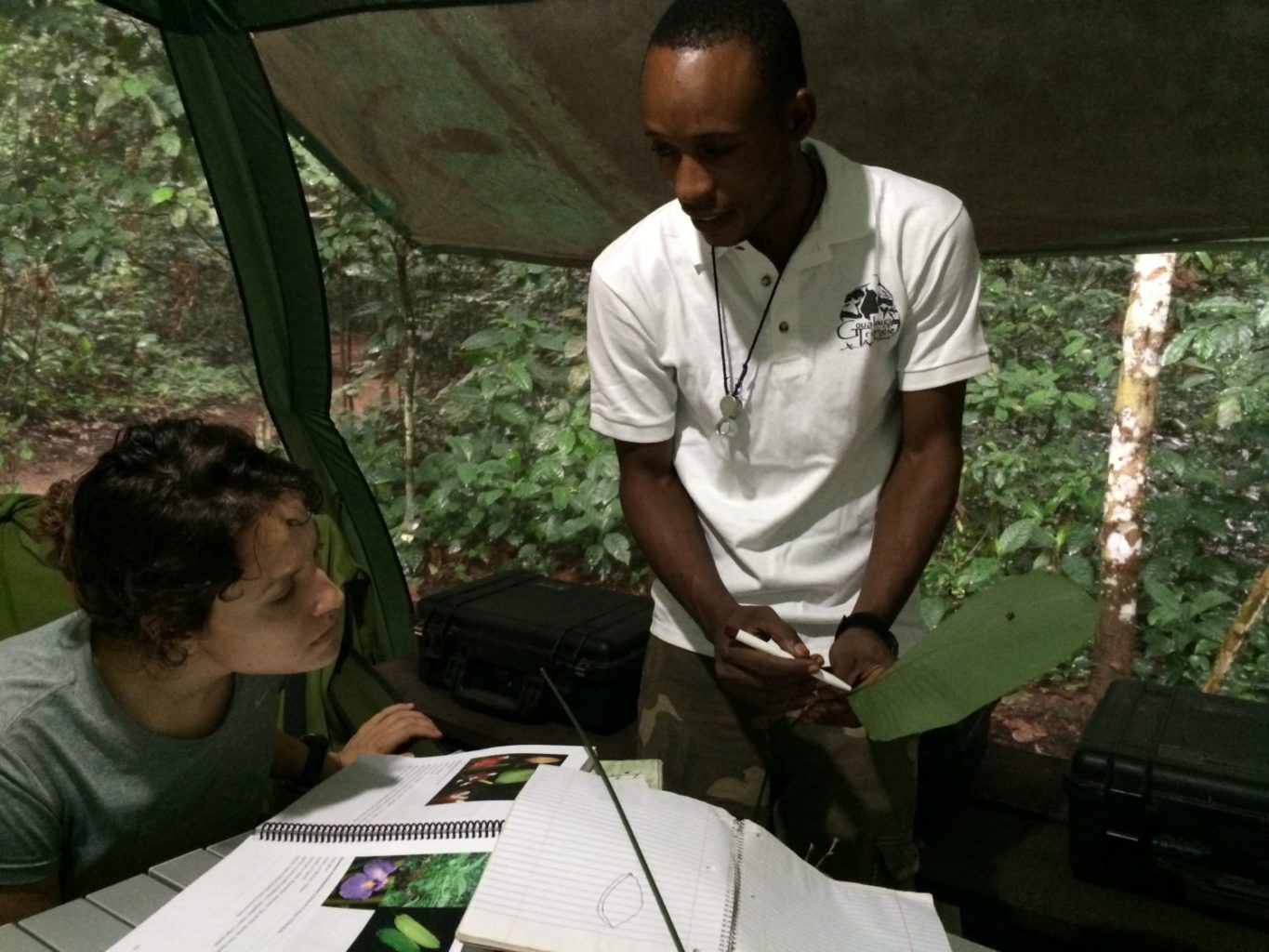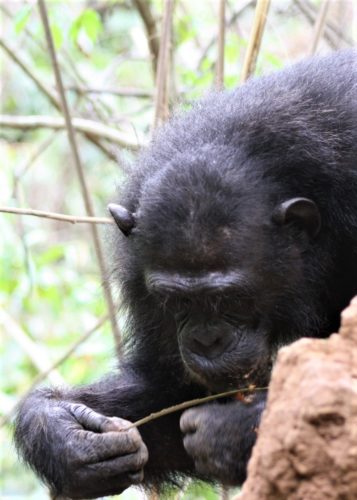Grantee Spotlight
Stephanie Musgrave, Department of Anthropology, Washington University in Saint Louis, was awarded a Leakey Foundation Research Grant during our spring 2016 cycle for her project entitled “Ontogeny of complex tool use among Goualougo Triangle chimpanzees.”

The emergence of complex technology is a hallmark of human evolution, and understanding the factors that led to the flourishing of technology in the human lineage is an enduring effort in anthropology. “High-fidelity” social learning mechanisms, such as teaching or imitation, are hypothesized to be integral to the persistence of complex tool traditions over time. These mechanisms can ensure the faithful transmission of complicated behaviors from one individual to another and are often considered unique to humans. Sex differences in tool-assisted foraging are also hypothesized to have played an important role in the emergence of tool technologies in humans. While the first evidence for tool use dates to 3.4 million years ago, human ancestors and Miocene apes likely used perishable tools much earlier. The evidence for this, however, may be invisible in the archaeological record, so other types of evidence are essential for understanding the evolution of technology.

Chimpanzees offer an invaluable opportunity to test hypotheses about the role of specific factors in the spread and maintenance of complex tool traditions.
Along with bonobos, chimpanzees are our closest living relatives, and every studied wild population of chimpanzees makes and uses tools. In the Congo Basin, chimpanzees show some of the most complex tool behavior of any nonhuman species. There, they sequentially combine different tool types to gather termites, ants, and honey. They select particular plant species to manufacture their tools, and they also manufacture brush tips on the ends of herb probes, a modification which makes these tools more efficient at gathering insects.
The goal of my research is to investigate how specific social learning mechanisms, as well as sex differences in learning, affect the acquisition of tool skills by immature chimpanzees in the Goualougo Triangle, Republic of Congo. One of my specific research aims is to characterize the steps by which youngsters learn to use tools during termite gathering and to quantify the impact of specific social learning mechanisms on skill acquisition.
Chimpanzees gather termites from above-ground and underground termite nests, and I am documenting their behavior in both settings. Termite gathering is more difficult in the subterranean context, as it requires more steps and a more flexible strategy. Comparing the developmental process between these contexts can help us better understand how task difficulty impacts the learning process and relates to the amount or type of social learning that occurs. In addition, I am tracking whether male and female chimpanzees learn skills differently, to help clarify the influence of intrinsic sex differences, task characteristics, and maternal behavior on learning.
Support important research projects like this one. Click here to donate!
I also look forward to comparing the ontogeny of termite-gathering skills to the acquisition of other tool tasks at Goualougo, and to the development of termite-gathering by chimpanzees in other populations, such as those of Gombe, Tanzania. This will help us gain broader insights into the sources of intraspecific diversity in chimpanzee tool repertoires and help us better model the evolutionary origins of human material culture.


